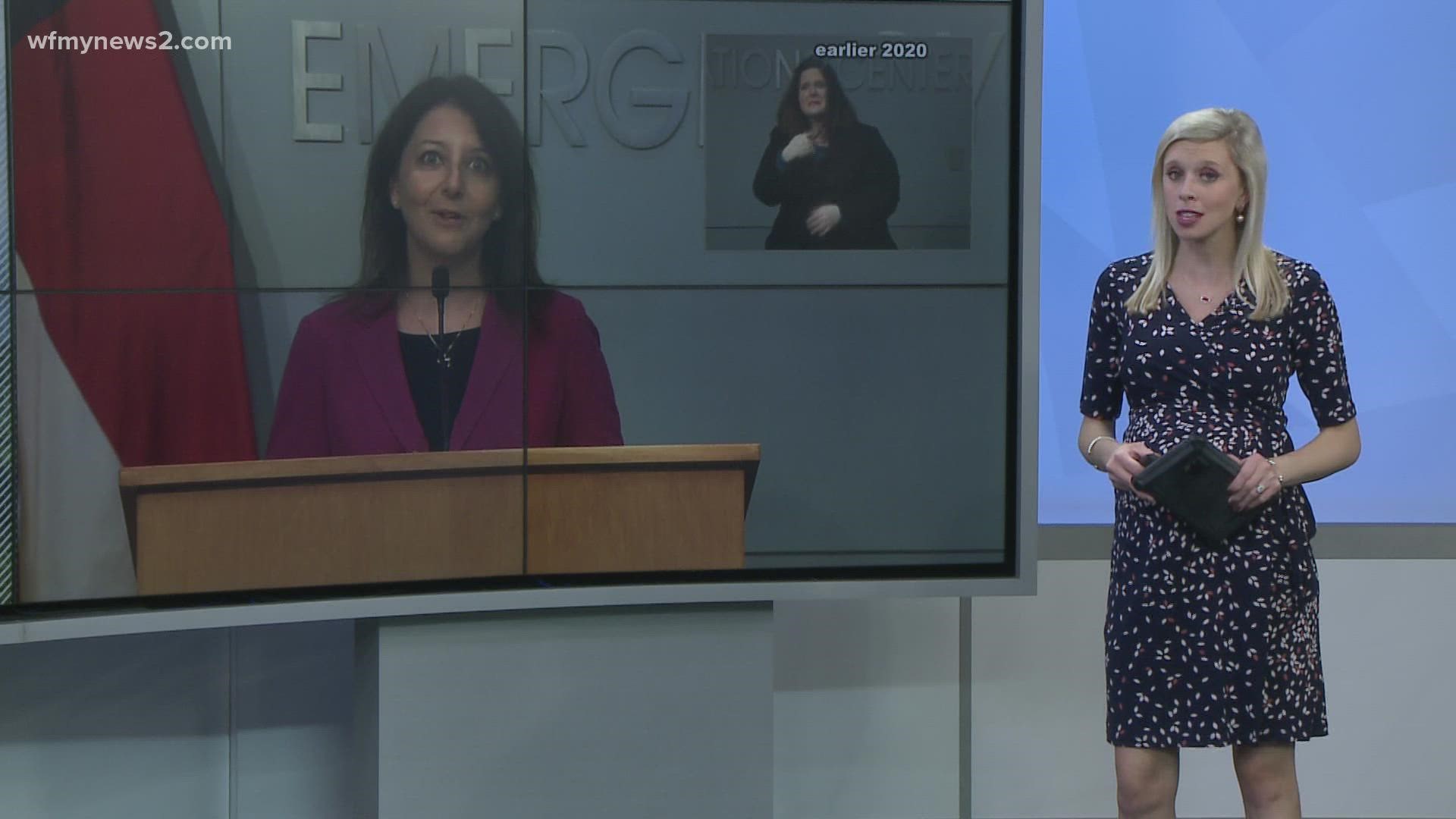RALEIGH, N.C. — North Carolina Gov. Roy Cooper gave an update on how the state is doing in the fight against COVID-19 Tuesday afternoon.
He was joined by other members of the state’s coronavirus task force.
“As the scientists and public health experts race to get answers about the new variant, we still know this to be 100% true – getting more people vaccinated is the way out of the pandemic,” Cooper said. “If you haven’t been vaccinated and you’re worried about the omicron variant, get your shot today.”
He said the Delta variant is still with us, causing sickness and death mostly among the unvaccinated, while health alerts about the emerging omicron variant have caused concern and opened "a new set of questions."
Cooper is urging people to get their COVID-19 vaccine if they haven't yet prior to the Christmas and December holidays.
"If you want to make your Christmas gatherings safer, get your shot today. These vaccines are safe, effective and free," he said.
Cooper is also urging North Carolinians to get their COVID-19 booster shot, if eligible.
"If you were vaccinated at least six months ago, or two months for J&J, go get your booster because it will strengthen your immunity. Make an appointment today," he said.
North Carolina Health and Human Services Secretary Dr. Mandy Cohen announced she's stepping down from her role, the governor's office announced her departure in a press release on Tuesday. Cohen quickly became a recognizable face in North Carolina during the pandemic, helping lead the fight against COVID-19 as part of the state's task force.
She spoke during Tuesday's press conference.
“Getting kids vaccinated helps keep them healthy and protected from COVID-19,” Cohen said. “Unvaccinated North Carolinians are six times more likely to get COVID-19 and 25 times more likely to die from COVID-19.”
The briefing also comes as U.S. health officials are closely watching a new COVID-19 variant – omicron. The variant was first reported in South Africa; the U.S. has put in place a travel ban for the country.
Cooper announced chief deputy secretary will take Cohen's place after she steps down from her role.
"Kody Kinsley currently serves as your chief deputy secretary at the department and has been leading COVID operations for the state," Cooper said. "I will appoint him as secretary immediately upon Cohen's departure."
Cooper said Cohen will continue to serve as secretary for the next month.
"Kinsley has extensive background in behavioral and mental health," Cooper said.
Cooper gave words of honor for Cohen and her departure.
"You and I, along with our remarkable team, have been in the trenches together, and we’re going to miss you," he said.
Cohen said she felt like now was the time to step back but said she more than likely will still be seen in COVID-19 briefings for now.
"Kinsley will take over on January 1, until then I will certainly be here," Cohen said. "I doubt it will be my last public appearance."
She said she was appreciative for the opportunity to lead the state in the fight against COVID-19.
“I want to make our state healthier and improve the common ground of our state,” Cohen said.
While there are no confirmed omicron cases in the U.S. right now, there is a concerning COVID-19 trend in North Carolina.
The percentage of COVID-19 tests coming back positive for the virus is rising.
The two-week average is at 8.3% positive. That’s the highest rate the state has seen for all of November.
In Guilford County, the two-week average is at 5.7%. That average is ticking upward because the latest daily rate for Guilford County sits at 11%.
It’s still a bit too early to see any potential impact from Thanksgiving gatherings.
Health officials say the best way to keep the virus at bay is by getting vaccinated. Vaccines are available to ages as young as five years old. Booster shots are also available to all U.S. adults.
"North Carolina is working to increase the number of vaccinated people, including children who are eligible," Cooper said. "Just as we did with the adult vaccine effort, we’re working with trusted messengers like community leaders and doctors to have conversations with parents who have questions."

